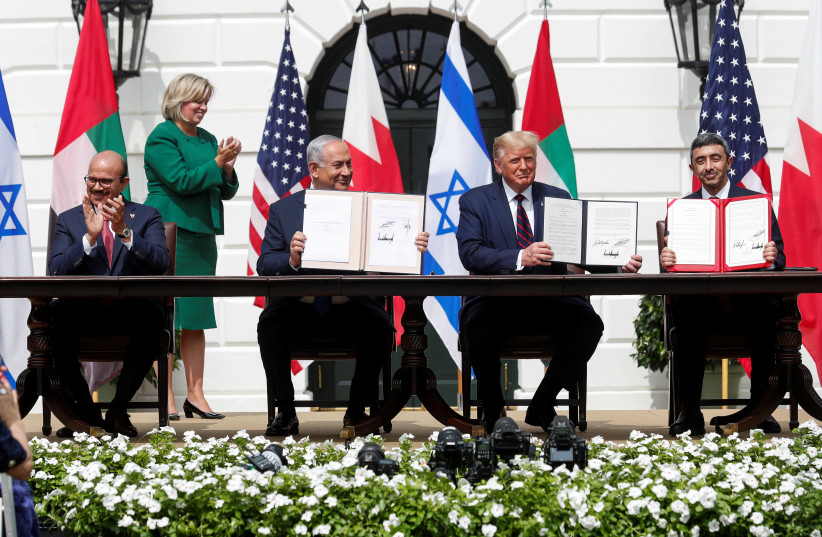The overwhelming likelihood is still that Iran and Hezbollah will attack Israel, maybe even as these words go to print. But if they do not, and even if they do, and a hostage deal eventually comes about, they will now be able to take credit instead of the Saudis for ending the regional hostilities.
For several months, the Biden administration had been offering a grand bargain: Israel pauses its war with Hamas for an indefinite period in exchange for a return of the hostages and, eventually also, normalization with the Saudis.
This grand bargain might have seen Israel another half dozen or more additional Arab and Muslim countries normalize with Jerusalem and changed the shape of the region even more than the already highly successful Abraham Accords, which led to normalization between Israel and Arab and Muslim countries in 2020.
Prime Minister Benjamin Netanyahu has repeatedly rejected the Saudi deal for several months.
Why is a source of debate.

Some said he wanted the deal but wanted to wait for a potential new Trump administration to negotiate better terms for Israel.
Some said he was not willing to say the words Palestinian state, even if those words did not require very much in the coming years on the ground.
Others said that he was not willing to end attacks on Hamas in Gaza, either because he really believes that Israel must militarily occupy Gaza for a period of years - no matter the harm to its global legitimacy - or because he was afraid that Betzalel Smotrich and Itamar Ben Gvir would bring his government down if he ended the war.
Other than pleasing Smotrich and Ben Gvir, the above reasons could be a substantive basis for deciding against the Saudi deal at this time.
But that would likely only be if something large and better is somehow achieved.
Ending war now could embolden Iran
What if what Netanyahu achieves by extending the war these several months until a tit for tat with Hezbollah and Iran led to the Islamic Republic threatening a massive regional war; is Tehran dictating the timing and some of the terms of the hostage deal and end of the Gaza war.
In that case, instead of using ending the war to bargain from a position of strength for returning the hostages and weakening and isolating Iran with a much broader new Sunni alliance, ending the war would come from a position of weakness.
Israel was so afraid of a conflict with Iran and Hezbollah that it finally stopped shooting at Hamas.
Rather than deterring the Islamic Republic from intervening more directly in the Israeli-Arab conflict, such a result could embolden Iran to intervene more aggressively in the future.
Smaller Israeli military actions against Hamas might suddenly need to take into account how Tehran might choose to respond against the Jewish state.
All of this is unlikely because Iran and Hezbollah probably will still attack Israel.
But what if they attack, Israel counterattacks, and then shortly after a hostage and end of Gaza war deal is reached.
Will that result not also encourage Tehran to intervene in Jerusalem's business with the Palestinians again in the future?
Add in that it is unclear that the Trump administration would have gotten Israel a better deal, even if it might have supported Jerusalem more in public, and add in that the next US president may be Kamala Harris, who certainly is not going to give Israel better terms for ending the war than the Biden administration, and it becomes less clear why the Saudi deal was not seized at the time.
Maybe the last remaining most substantive objection would be that included a commitment to a Palestinian state. But Israel committed to a Palestinian state in 1993, and 31 years later, still has not been compelled to follow through on that because at least some of the Palestinians continue to act violently enough against the Jewish state to make their statehood less viable.
IDF officials have been louder than ever lately about Israel's lacking a grand strategy for how it wants to improve its broader position in the region.
If Iran takes credit for ending the current war instead of the Saudis, it will only get harder to deflect that criticism.
